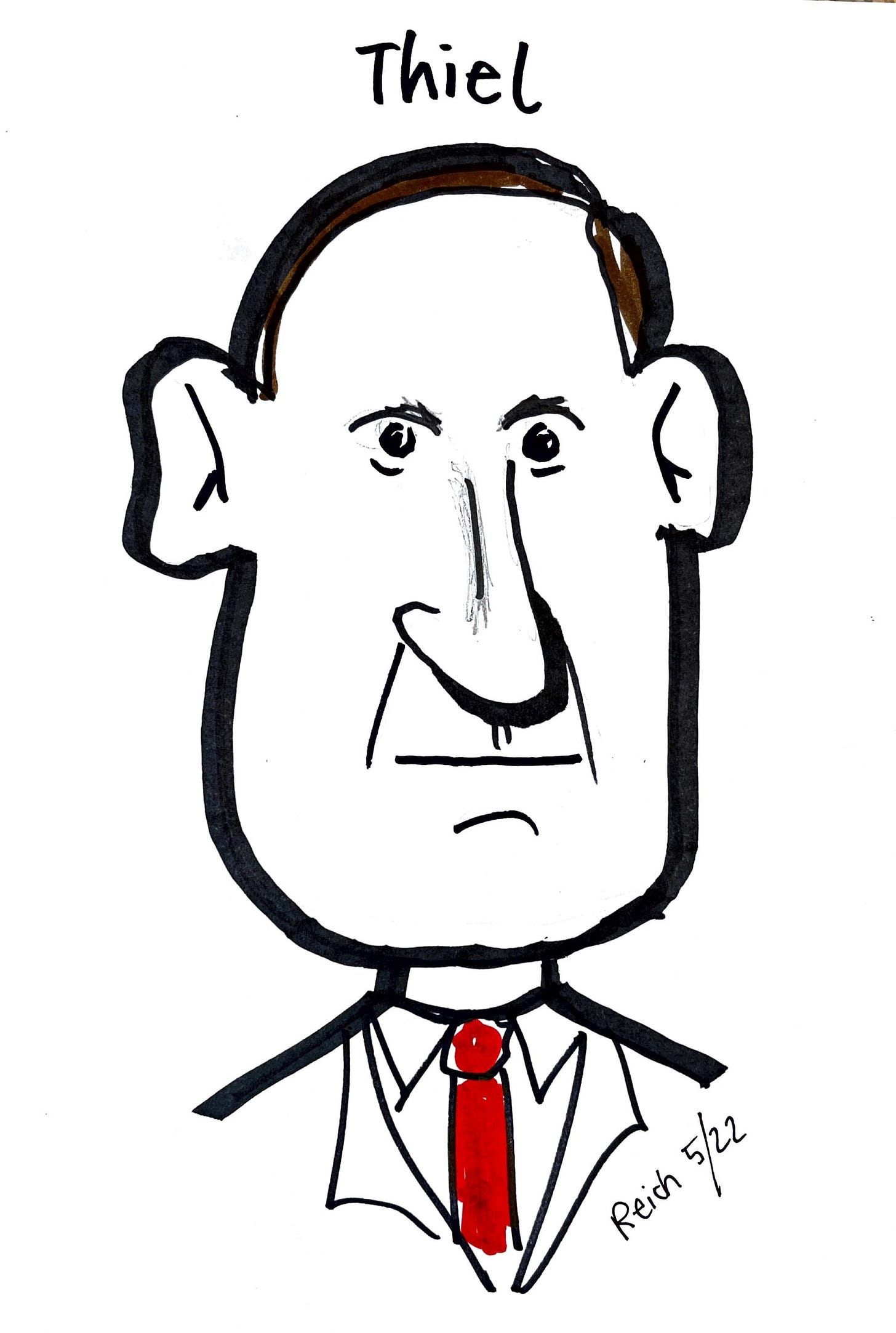We fool ourselves if we believe that the televised hearings of the January 6 committee are changing the direction of the Republican Party, or that the hearings will end the attempted coup that Trump launched immediately after the 2020 election. The G.O.P. is becoming ever more divorced from reality. Trump’s attempted coup continues unabated.
The first three hearings of the House January 6 committee demolished the myths of voter fraud repeated incessantly by Trump and his supporters and amplified by Republicans in Congress. A parade of Republican witnesses — including his attorney general William Barr, Ivanka Trump, and his own campaign lawyers — testified that they knew Trump lost the election, and told him so. Trump was also informed that the demands he was making of his Vice President Mike Pence to block his defeat were illegal.
Yet the Republican response to those hearings has ranged from indifference to hostility. Representative Kevin McCarthy, the Republican leader of the House, wrote on Twitter that the members of the committee “will not stop lying about their political opponents,” and he calls the committee “despicable.”


On Friday, speaking at the Faith and Freedom Coalition conference in Nashville, Trump repeated his Big Lie — as if the hearings never happened — and once again berated Pence, charging that his former Vice President “did not have the courage to act” in trying to unilaterally reject the Electoral College votes that were being cast for Joseph R. Biden Jr.
Why aren’t the hearings slowing the Big Lie or Trump’s continuing attempted coup?
First, the Lie is now fully entrenched in the Republican Party, a central tenet of G.O.P. dogma. It has become the vehicle by which Republican candidates signal their fealty both to Trump and to a broad range of grievances — some imaginary, some derived from the so-called “culture wars” — that now constitute the Republican brand.
So far, at least 108 Republican candidates who embrace the Big Lie have won their nominations or advanced to runoffs, and there is no sign that the hearings have reduced the intensity of their demagoguery. Voters have chosen eight Big Lie candidates for the U.S. Senate, 86 Big Lie candidates for the House, five Big Lie candidates for governor, four for state attorney general and one for secretary of state.
In Michigan, the Republican race to challenge Governor Gretchen Whitmer is led by Ryan Kelley, a real estate broker who was arrested this month and charged with participating in the January 6 assault on the Capitol. Republican nominee for Michigan attorney general Matthew DePerno led a November 2020 lawsuit over an election night tabulation error in Antrim County that Trump supporters have seized on in their efforts to perpetuate unfounded claims of fraud. (DePerno has promised to lead criminal investigations of alleged fraud in 2020 despite the conclusion by Republican state senators that his allegations are “demonstrably false.”) Secretary of state nominee Kristina Karamo served as an observer in Detroit during the 2020 absentee ballot count and claimed, without evidence, that she had witnessed fraud.
In Arizona, the leading Republican candidate for governor, Kari Lake, has made the stolen election claims central to her campaign. Mark Finchem, a candidate for secretary of state, was at the front steps of the Capitol on January 6. And Blake Masters, who aims to challenge incumbent Democrat Senator Mark Kelly, says without evidence that “one-third of the people outside the Capitol complex on January 6 were actual F.B.I. agents.”
In Pennsylvania, Republican senate candidate Mehmet Oz has embraced the Big Lie. Gubernatorial nominee Doug Mastriano also asserts it, and has said that the Republican-controlled legislature should have the right to take control of the all-important choice over which presidential electors to send to Washington.
Big Lie nominees for statewide office in swing states also include Herschel Walker for Senate in Georgia and Burt Jones for Georgia lieutenant governor.
Secondly, the hearings have not affected the Republican Party (and are unlikely to) because Big Lie candidates are under no pressure to respond to the findings of the committee. Their districts or states already lean Republican, and most of voters in them have dismissed or aren’t paying attention to the committee hearings.
Recall that the 2020 election was mainly about Trump. You were either for him or against him. Voters in districts and states that voted largely for him in 2020 will not easily change their minds. The cognitive dissonance required to shift from believing Trump’s alleged conspiracy to accepting the reality of what occurred is simply too formidable. In addition, few of their sources of news — Fox News, rightwing radio, and rightwing social media — have questioned the Big Lie.
Because these districts or states lean Republican, these Big Lie candidates are likely to win the offices they are seeking, notwithstanding. In an open primary in a safely Republican Georgia district, for example, all nine candidates questioned the 2020 result. Of the two candidates who advanced to June’s runoff, lawyer Jake Evans touted his past efforts to “overturn” elections, while physician Rich McCormick emphasized that he refused to concede in a 2018 race. Many of these Republican Big Lie candidates will hold positions with the power to interfere in the outcomes of future contests — to block the certification of election results, to change the rules around the awarding of their states’ electoral votes or to acquiesce to litigation attempting to set aside the popular vote.
The third reason the hearings aren’t affecting the Republican Party is that the G.O.P.’s biggest backers — such as billionaire Peter Thiel, who has donated tens of millions of dollars to the campaigns of Big Lie candidates J.D. Vance and Blake Masters — show no signs of reducing their backing in light of the committee’s findings.
It’s shameful enough that Republican lawmakers and candidates have embraced the Big Lie for the utterly cynical purpose of gaining or remaining in power. For the G.O.P.’s billionaire funders to embrace it as well, presumably for no purpose other than to destabilize American democracy, can only be described as traitorous.
In his closing statement before the January 6 committee, former U.S. appellate court judge J. Michael Luttig — one of the most conservative judges in the federal system, whom George W. Bush passed over for the Supreme Court because Bush thought him too conservative — called Trump and his allies and supporters “a clear and present danger to American Democracy.” This was not only due to what happened on January 6, said the Judge, but because they still “pledge that in the presidential election of 2024 if the former president or his anointed successor as the Republican Party presidential candidate were to lose that election that they would attempt to overturn that 2024 election in the same way that they attempted to overturn the 2020 election.”
By not divesting itself of the Big Lie and not embracing the truth of what the January 6 committee is revealing, the Republican Party is losing its last shred of moral authority to function as one of America’s two governing parties.













Share this post